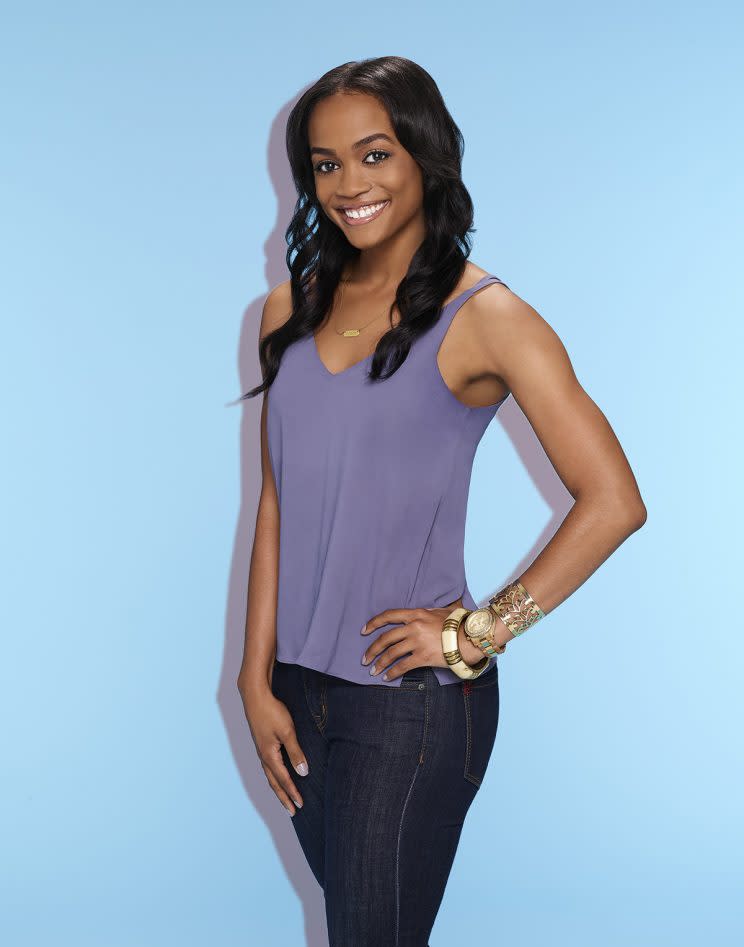Why ‘The Bachelorette’ Casting a Black Lead May Be Too Little, Too Late
ABC has announced that The Bachelor franchise is finally getting its first black bachelorette: Rachel Lindsay, a 31-year-old lawyer and cast member of the current season of The Bachelor, who will have a throng of men court her on the show’s 13th cycle.

The move, which was officially confirmed Monday on Jimmy Kimmel Live, comes as Lindsay remains in the game on the current season of The Bachelor, making it all the more interesting to see what happens with her and current suitor Nick Viall.
The Bachelor and Bachelorette have been criticized over the years for a lack of diversity — including through a class-action lawsuit in 2012, which was dismissed. Last year, Fusion found that 57 percent of black people cast on either show were off within two weeks. UnReal, a fictional TV series about a Bachelor-esque show, cast a black man to play the bachelor in its second season, showing up the actual hit TV series.
Obviously, there are plenty of people heartened by the decision to have Lindsay as the show’s main love interest. After all, it’s a big deal that they are finally branching out and entertaining the idea that — gasp! — black women are worthy of love, are desired, and are also relatable to a national audience. But is it too little, too late?
To me, the answer is yes and no at the same time. As a black woman, I am always happy to see positive, even normal and mundane, representations of women who look like me on television. It is a relief, at times, to see a black girl doing regular stuff — falling in love, working a job, trying to navigate life like any other person — without having society’s old, stereotypical ideas of black womanhood in the way. To see a working professional woman who looks like me represented as a full human being and not a trope is a wonderful thing.

As for why positive media representations of black women matter, we can turn to the wise words of former first lady Michelle Obama. “For so many people, television and movies may be the only way they understand people who aren’t like them,” she told Variety. “And when I come across many little black girls who come up to me over the course of this 7? years with tears in their eyes, and they say: ‘Thank you for being a role model for me. I don’t see educated black women on TV, and the fact that you’re first lady validates who I am…'”
But then again, Hollywood does this all the time, and The Bachelor franchise has had more than enough opportunity to cast a black lead. If there was any worry about whether or not a majority white audience would respond well to a black-led Bachelorette (an idea that seems, quite frankly, insulting to white people), then the success over the past few years of Scandal, How to Get Away With Murder, and Empire should have been enough of an indication that, as long as the plot line is good, audiences won’t care about skin color.
But still no black lead. And now it just seems like an attempt to redeem the show’s public image.
After years of criticism about the lack of black people in the show, Friends added Aisha Tyler as a regular cast member. Lena Dunham’s Girls cast Donald Glover for an episode after folks watching the show’s first season wondered how it was possible for four white girls living in Brooklyn to barely have any meaningful interactions with people of color.
And now it appears that the same thing is happening with The Bachelorette. So while I’m happy for Lindsay, I’d like to see the show repeat the move, even after the current headlines die down. Maybe we’ll get a black bachelor? A Desi bachelorette? An Arab bachelor? The options are endless. Let’s hope the producers see it that way too.
Related: Yvonne Orji of ‘Insecure’ to Star in Ad Celebrating Black Beauty
Octavia Spencer Wants to See Women of “All Shapes and Sizes” in Movies, and We 100% Agree
Let’s keep in touch! Follow Yahoo Beauty on Facebook, Twitter, Instagram, and Pinterest.
